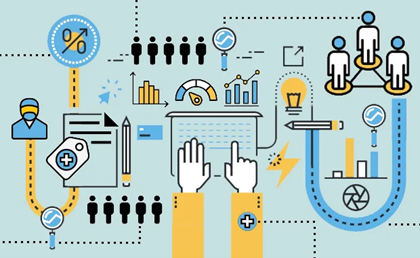

Northwell Health Digs Deep on Quality of Care and Health Disparities

Northwell Health and its Feinstein Institutes for Medical Research have embarked on two significant programs to improve quality of care and address health disparities, particularly in underserved communities.
The recently announced Scott and Debby Rechler Center for Health Outcomes within the Institute of Health System Science at the Feinstein Institutes will develop large-scale data models and leverage the use of artificial intelligence (AI) tools to address health care disparities and ultimately improve care within its service area of 11 million people. The center was funded thanks to a $10 million donation made by the Rechlers.
The donation also will support an endowed position and support the recruitment of a professor of health outcomes as well as health economists and data scientists to study and analyze patient data to improve patient outcomes. Northwell believes the effort will translate research findings into improved care for millions of its patients.
Researchers will have access to Northwell Health’s vast patient database, patient-consented quality of life research and by using AI technologies. The new center will help researchers accelerate identification of patterns of health decline in patients and implement proactive outreach to offer evidence-based treatments, particularly for those living in underserved and marginalized communities.
The health system recently began capturing quality of life data from patients who participate in its Northwell Health Vital Sign survey program. Patients can take a one-minute survey through a smartphone app four times a year to report on their quality of life, defined as the degree to which a person feels healthy, comfortable and is able to enjoy life’s events.
The questionnaire covers five areas: usual activity, mobility, anxiety/depression, pain/discomfort and self-care. Patients who complete the survey can review and track their quality-of-life data over time through the smartphone app. The information can be used to fuel conversations with a patient’s provider.
The research center, along with the consensual data shared by patients in the Health Vital Sign program, has the potential to create a new medical model for the nation, Scott Rechler said in a statement. “For too long, our country’s health care system has been focused on reacting to illness rather than proactively taking steps to prevent illness. Through the use of data, we can better identify issues early on and proactively drive health care outcomes before they become larger problems.”
Learn More
The AHA Center for Health Innovation’s Market Insights report, Using Data to Reduce Health Disparities and Improve Health Equity, provides a wealth of insights to hospitals and health systems looking for ways to leverage new capabilities to improve health outcomes for their communities.



